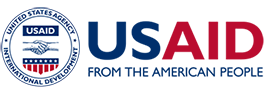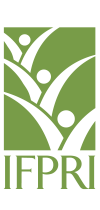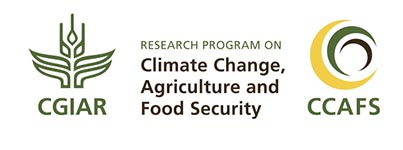Nigeria
STAKEHOLDER NET-MAP WORKSHOP ON UNDERSTANDING THE INTERCONNECTEDNESS OF CLIMATE, GENDER, AND NUTRITION LANDSCAPE IN NIGERIA
The Gender, Climate Change, and Nutrition Integration Initiative (GCAN), led by the International Food Policy Research Institute (IFPRI), organized a series of Net-Map workshops between February 22–29, 2024 in three states in Nigeria: Adamawa (February 22), Kano (February 27), and FCT-Abuja (February 29). With support from the Bill and Melinda Gates Foundation (BMGF) 2023–2027, GCAN aims to ensure that agricultural investments, policies, and actions on climate change fully integrate gender equality, women’s empowerment, and nutrition objectives. The purpose of the workshops was to identify key actors involved in designing, implementing, and monitoring climate change policies and interventions in Nigeria at both the national and state level, how they interact, and the level of influence each actor holds in climate change policy processes. (more…)
EXAMINING THE GENDER DIGITAL DIVIDE: A Case Study from Rural Nigeria
Rural Nigeria, with its diverse cultural and socio-economic landscapes, presents unique challenges when it comes to digital inclusion. Traditional gender roles, limited educational opportunities, inadequate infrastructure, and sociocultural norms often combine to create barriers that disproportionately affect women’s access to digital technologies. As a result, women in rural areas face significant challenges in acquiring digital skills, accessing online information and services, and participating in digital platforms, thus perpetuating the gender gap and further marginalizing women from the benefits of the digital revolution.
Assessing the risk of COVID-19 in Feed the Future countries
By Jawoo Koo, Carlo Azzarri, Aniruddha Ghosh, Wahid Quabili
Presentation to USAID Nigeria Mission phone on “Impact of COVID-19 on rural women and men in Cross River and Kaduna states, Nigeria” January 11, 2021
The GCAN team implemented 3-5 phone surveys in 7 Feed the Future countries to assess the early and medium-term impacts of the Covid-19 pandemic on rural women.
Agriculture and Youth in Nigeria: Aspirations, Challenges, Constraints, and Resilience
Nigeria’s rural youth are facing various challenges in agriculture, with limited job opportunities outside the sector. Using qualitative focus group discussions and individual interviews with youth in four communities in two Nigerian states, the paper reflects on nuanced differences in perceptions of opportunities, coping mechanisms and overall resilience of youth in rural Nigeria, as well as differential access to information, inputs and irrigation based on age, gender and community. We apply the GCAN framework, to illustrate the factors that shape resilience pathways in the context of climate change and other shocks and stressors. Many of the constraints rural youth face are faced by other groups, including lack of finance, farm inputs and modern equipment for production and processing. Yet, youth face higher and specific hurdles related to lack of capital, experience and a strong social capital and networks that would facilitate coping with climatic and other shocks and improving their livelihoods. Young women in particular have less access to information and irrigation, and are less likely to benefit from cooperative memberships. Nevertheless, young men and women have higher resilience compared to older groups in terms of health, mobility and ability to migrate, as well as easier access to the internet as a source of information. Youth can better build resilience and a network and receive government assistance when part of a cooperative. Nevertheless, a larger enabling environment in the sector is needed, to improve roads, access to markets, information, inputs and equipment to support young farmers who cannot leave the agriculture sector. A promising factor is that many young men and women realize the importance of agriculture and aspire to become successful in the sector.
Exploring the Gendered Impacts of Covid-19 through Phone Surveys using the GCAN Framework
The GCAN Framework is a useful tool for identifying the potential impacts of Covid-19 on rural women. These impacts will be explored through phone surveys in Ghana, Nepal, Nigeria and Senegal. Two recent presentations by GCAN team member, Elizabeth Bryan, highlight these potential impacts, plans for the phone surveys, and potential challenges to reaching women over the phone.
Evaluating the risk of climate change-induced aflatoxin contamination in groundnuts and maize: Result of modeling analyses in six countries
This policy note summarizes research that assessed the likely impact of climate change on aflatoxin contamination in groundnuts (in Burkina Faso, Niger, and Nigeria) and in maize (in Burkina Faso, Honduras, Guatemala, Nepal, Niger, and Nigeria), and the impact of temperature, precipitation, and soil types on aflatoxin contamination. A future goal is to improve the calibration of the modeling software utilized to enable its use as an early warning tool for aflatoxin hotspots.
Evaluating risk of aflatoxin field contamination from climate change using new modules inside DSSAT
Aflatoxins affect the health of close to 70 percent of the population of the world through contaminated food. Smallholder farmers in developing countries can be especially hard hit, since they consume a high proportion of what they produce without a clear knowledge of the level of contamination their harvest might have. Climate change can cause dramatic shifts in the level of contamination and the frequency of that high levels of aflatoxins are found in harvested foods, particularly maize and groundnuts. In this paper, we introduce new software that is able to estimate potential field concentrations of aflatoxins based on weather, and then apply the software to the question of how projected changes in climate will affect the occurrence of aflatoxins in six countries. The analysis is done at a very fine geographic resolution so that problem areas within countries are also identified. For rainfed groundnuts, baseline period calculations using the module show fairly high frequency of expected contamination levels above 4 ppb for Burkina Faso and Niger (39 and 56 percent), while Nigeria has a more modest estimate of 14 percent. However, factoring in climate change, we find great variation in projections. One of the five climate models used in the analysis projects a much wetter region which serves to drive down aflatoxin concentrations steeply. However, others have lower or even negative projections for changes in rainfall and coupled with temperature increases (large in some climate models), three of the five climate models project rising aflatoxin concentrations. The frequency of projected contamination levels above 4 ppb in rainfed maize are high in the baseline for Niger, at 43 percent, though Niger grows little maize. Burkina Faso, Nigeria, Guatemala, and Honduras all have more modest projections in the baseline (8, 9, 4, 10), while Nepal has just a trace above 0. Aflatoxin concentrations are projected to rise with climate change by all 5 models for Nepal, Guatemala, Honduras, and Nigeria, but only rise for 3 models for Niger and 4 of the 5 models for Burkina Faso. We use regressions with weather variables on projected aflatoxin concentrations levels above 4 ppb to better understand critical levels of rainfall and temperature that could trigger local crises with aflatoxins in on-farm consumption of harvested foods. At the end of the paper, we examine why aflatoxin concentrations in Nepal as reported by the modeling results appear low despite aflatoxins being a significant issue for the country.
Nigeria mission visit and field work
During May 14-21, the GCAN team members visited the USAID mission in Nigeria to present research results, including on near-term changes in climate and changing aflatoxin hotspots. To view the presentation click here.
Policy note on the interlinkages of Climate Change, Gender and Nutrition in Nigeria
Increasing temperature, erratic rainfall, and other extreme events, such as floods and droughts, pose severe threats to development in Nigeria. Climate change will have significant adverse impacts on crop production and livelihoods, making the country’s poor and disadvantaged people even more vulnerable. It is imperative that the impact of relevant climate science on agricultural production be considered, together with important cross-cutting issues that influence agricultural growth, poverty alleviation, and climate resilience—especially gender and nutrition—if the goals of Feed the Future and the Global Food Security Strategy are to be achieved. This policy note summarizes assessments of these interlinkages in the Nigerian context under GCAN.
GCAN presentation to USAID Mission in Nigeria
During a week-long visit in Nigeria in May 2017, the GCAN team presented key climate-gender-nutrition linkages to the USAID Mission. Productive discussions took place between the GCAN team and USAID Mission staff on priorities and potential research topics that would inform USAID's programming in Nigeria. The GCAN team also helped the mission with the Climate Risk Screening and Management of their different activities. GCAN presentation to Nigeria USAID mission - slide deck
Nigeria
USAID/West Africa‘s overarching Feed the Future goal is to assist countries in West Africa in achieving MDG 1, Eradicating Hunger and Extreme Poverty. Although Nigeria is Africa’s largest economy, its most populous country and largest democracy, and a major oil exporter, Nigeria must overcome daunting development challenges if it is to fulfill its significant potential.




